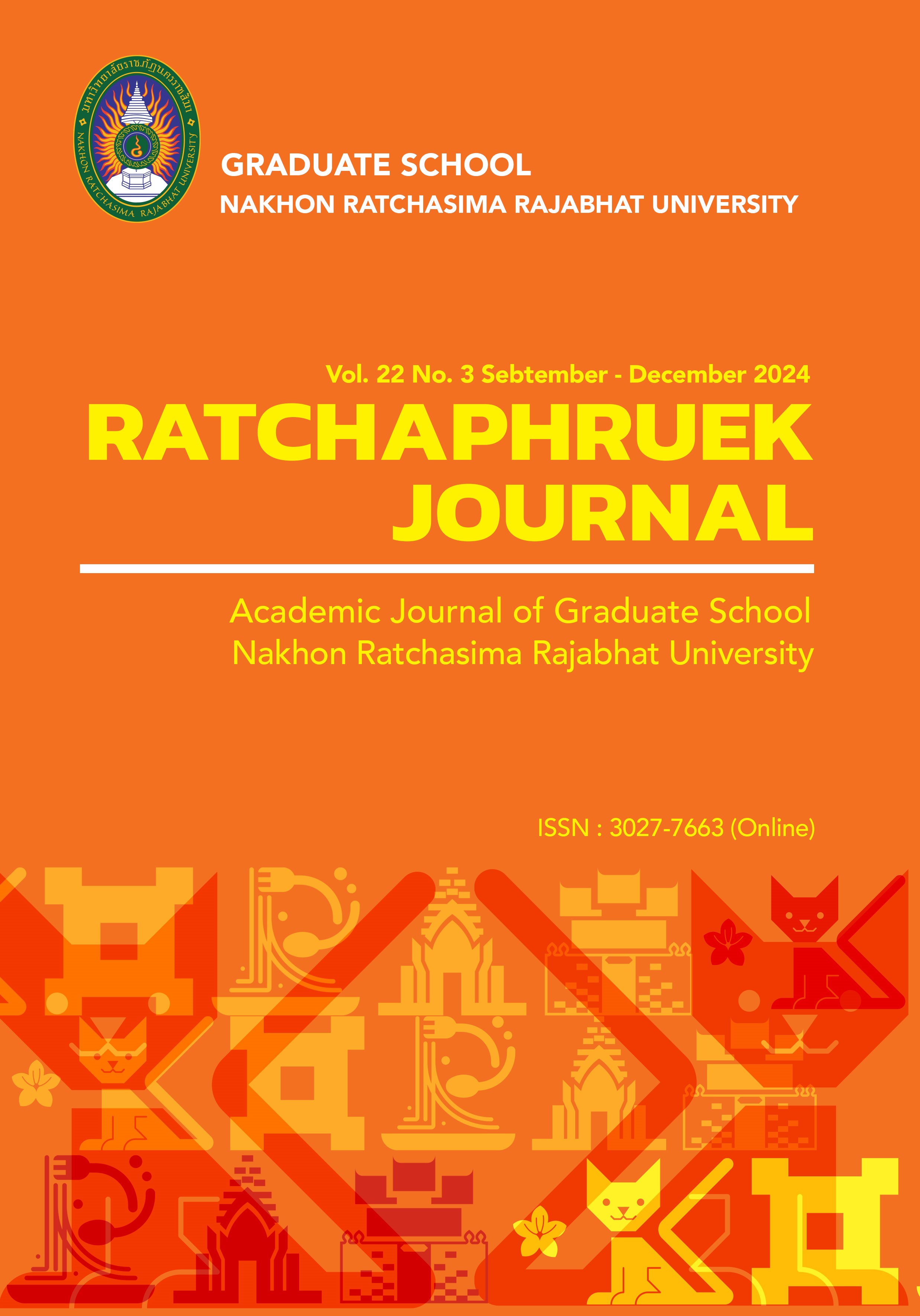Enhancing Students’ Learning Engagement and Academic Writing Ability through Challenge-Based Gamification Lessons
Main Article Content
Abstract
The objectives of the study were to: 1) assess the level of academic writing ability and learning engagement; 2) compare academic writing ability before and after the use of challenge-based gamification lessons; 3) examine the relationship between academic writing ability and learning engagement during gamified lessons; and 4) determine student satisfaction with the challenge-based gamification approach. Sixty-five second-year students from Nakhon Ratchasima Rajabhat University participated in a 15-week Academic Writing course during the first semester of 2022, which included gamified elements such as points, leaderboards, and weekly challenges. Data collection involved pre-test and post-test assessments of writing ability and questionnaires on student satisfaction. Results showed a significant improvement in writing ability, with post-test scores increasing from an average of 7.76 to 16.04 out of 25. Learning engagement, as measured by experience points, averaged 546.09, ranging from 96 to 1,667 points. A Pearson correlation coefficient of 0.208 revealed a weak positive relationship between learning engagement and writing ability, accounting for 4.31% of the variance in writing outcomes. Students expressed high satisfaction with the gamified lessons, especially regarding achievement, guidance, and enjoyment. These findings indicate that challenge-based gamification is effective in enhancing academic writing skills and fostering a positive learning experience.
Article Details

This work is licensed under a Creative Commons Attribution-NonCommercial-NoDerivatives 4.0 International License.
References
Barata, G., Gama, S., Jorge, J., & Gonçalves, D. (2013). Improving participation and learning with gamification. In Proceedings of the First International Conference on Gameful Design, Research, and Applications (pp. 10-17). Stratford, Ontario, Canada: Association for Computing Machinery (ACM).
Çakıroğlu, Ü., Basibüyük, B., Güler, M., Atabay, M., & Memiş, B. (2017). Gamifying an ICT course: Influences on engagement and academic performance. Computers in Human Behavior, 69, pp. 98-107.
Fredricks, J. A., Blumenfeld, P. C., & Paris, A. H. (2004). School engagement: Potential of the concept, state of the evidence. Review of Educational Research, 74(1), pp. 59-109.
Hamari, J., Koivisto, J., & Sarsa, H. (2014). Does gamification work? A literature review of empirical studies on gamification. In Proceedings of the 47th Hawaii International Conference on System Sciences (pp. 3025-3034). Waikoloa, Hawaii, USA: IEEE.
Hanus, M. D. & Fox, J. (2015). Assessing the effects of gamification in the classroom: A longitudinal study on intrinsic motivation, social comparison, satisfaction, effort, and academic performance. Computers & Education, 80, pp. 152-161.
Högberg, J., Hamari, J., & Wästlund, E. (2019). Gameful experience questionnaire (GAMEFULQUEST): An instrument for measuring the perceived gamefulness of system use. User Modeling and User-Adapted Interaction, 29(3), pp. 619-660.
Kapp, K. M. (2012). The gamification of learning and instruction: Game-based methods and strategies for training and education. San Francisco, CA: Pfeiffer.
Seixas, L. R., Gomes, A. S., & Filho, I. J. M. (2016). Effectiveness of gamification in the engagement of students. Computers in Human Behavior, 58, pp. 48-63.
Xu, X., Shi, Z., Bos, N. A., & Wu, H. (2023). Student engagement and learning outcomes: An empirical study applying a four-dimensional framework. Medical Education Online, 28(1), p. 2268347.


